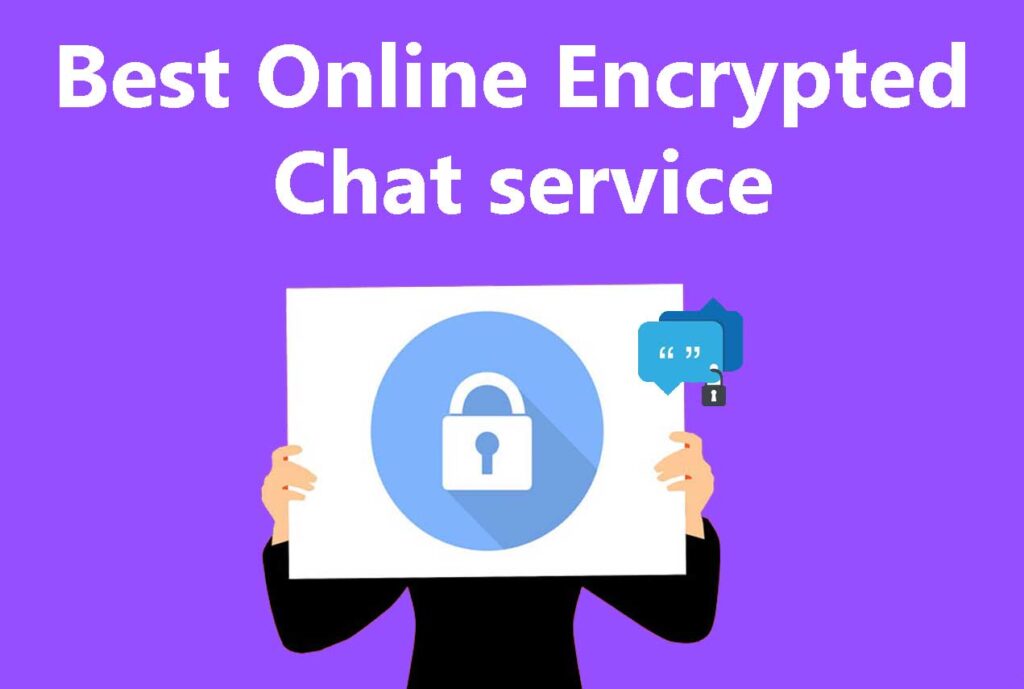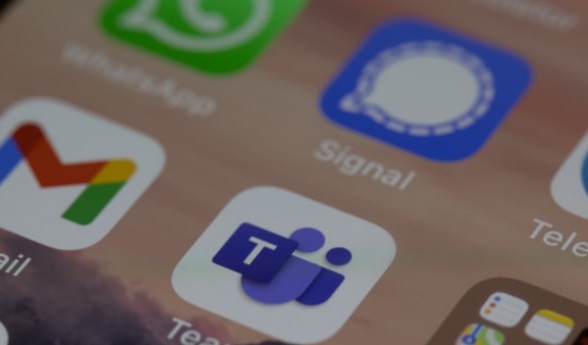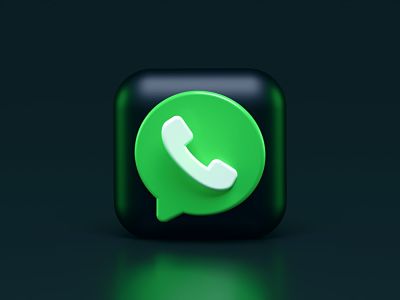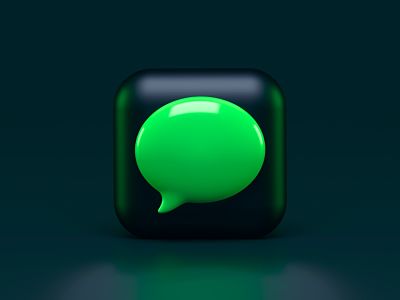Many of you may feel that all of your personal informational chat exchanged over Facebook Messenger, Skype, or Snapchat is secure, but this isn’t always the case. Keep in mind that several popular applications, such as Twitter, Instagram, Snapchat, and Facebook Messenger, do not employ end-to-end encryption, so your interactions and information may not be completely secure. On the other hand, several chat applications that provide messaging services have stepped up their security and privacy game by using end-to-end encryption. Your communications will almost certainly fall into the hands of hackers and other hostile actors attempting to steal them if you don’t employ end-to-end encryption. Because the fight to keep our data safe is more intense than ever, we developed a list of trustworthy encrypted messaging applications. Governments want it, businesses want access to it, and hackers want it most.
Encrypted Messaging Apps with the Highest Level of Security
1. Signal
Signal, formerly known as Text Secure Private Messenger, has been hailed by cryptographer Bruce Schneier, Edward Snowden, the US Congress, and even the European Commission as the gold standard of communications security. Signal is a free messaging software for iPhone and Android phones, as well as desktop computers, that transmits messages over its own data network.
Signal security features:
Encryption from End to End
Only the sender and recipient may see messages exchanged through the Signal app. Even the app’s creators, Open Whisper Systems, are unable to decode the communications. You may also do phone calls, group messaging, and encrypted video calls in addition to instant messages.
Free and open source software
Signal’s source code is available to the public and may be seen by anybody. This level of openness enables regular audits and ensures that the app’s security is constantly current.
Messages that vanish
Signal enables you to make both transmitted and received communications “disappear” after a specified period of time has passed for further protection.
The amount of data stored is kept to a bare minimum
Signal, unlike many other messaging applications, only saves the metadata that is necessary for the programme to function, such as your phone number, random keys, and profile information.
Password protection
You may also use the app to lock it with a password. So your messages will be safe even if your phone gets into the wrong hands.
Signal security risks:
Signal’s greatest risks is that it poses almost no security concerns. Signal will stay at the top of the messaging app food chain as long as the program’s creators continue to be keep-eyes about addressing vulnerabilities.
2. WhatsApp
WhatsApp is one of the most popular messaging applications today, with over 300 million daily users. One of the app’s strongest features is its widespread appeal, as well as the fact that it’s free on both iPhone and Android and doesn’t include any advertisements. You can send text messages, pictures, and brief video and audio communications with ease.
WhatsApp security features:
End to End Encryption
WhatsApp rolled out a very strong encryption technology created by Open Whisper Systems across all mobile devices in April 2016. Only the sender and recipient have the keys to decrypt messages transmitted through WhatsApp, ensuring that they cannot be viewed or read by anyone else. Encryption is also used for voice and video conversations.
Check the encryption
In the contact details page, WhatsApp also includes a “Verify Security Code” box that enables you to check that your calls and texts are end-to-end encrypted. The code is shown as a QR code as well as a 60-digit number.
Verification in two steps
Two-step verification is an optional feature that adds additional protection to your account by requiring you to enter a PIN number to verify your phone number on any device.
Messages that were not saved
Your message is only stored on a WhatsApp server for the duration between when you send it and when it is delivered to the recipient. If the message cannot be sent for whatever reason, it is removed from the server after 30 days.
WhatsApp security risks:
Backups that aren’t encrypted
Although WhatsApp communications cannot be intercepted while in transit, what about backups on iCloud or Google Drive? In late 2016, WhatsApp introduced encryption security to iCloud backups, which is great news for iPhone users. However, Google Drive backups of Android phone communications are not encrypted, making them susceptible to hackers, countries that might legally compel Google to hand up your conversations, and even Google itself.
Concerns about Facebook privacy
When Facebook acquired WhatsApp in 2014, it brought with it worries about the social media giant’s reputation for intrusive data gathering. While Facebook promises users that they will not be able to read encrypted WhatsApp conversation, WhatsApp has revealed that it would share user information with Facebook for a variety of reasons, including ad targeting. All WhatsApp users will have to consent to have their user data shared with Facebook at some point in Spring 2021.
3. Telegram
Telegram, which has over 200 million users on both iPhone and Android, has been gradually increasing in popularity since its launch in 2013 and is renowned for its unique group chat function, which can accommodate up to 100,000 people. However, a dispute with the Russian authorities over the app’s reluctance to give over the encryption keys led in it being completely banned in Russia earlier this year. This has sparked a debate over whether messaging platforms have a duty to collaborate with law enforcement or to keep user data safe.
Telegram security features:
Encryption from End to End
Telegram has a function called “Secret Chat” that encrypts all of your communications from beginning to finish. However, since the functionality isn’t enabled by default, you’ll need to know how to enable it.
Locked Password
If your phone is lost or stolen, you may create a four-digit code to prevent outsiders from accessing your texts.
Verification in two steps
Two-step verification, which can be found in Settings, requires you to log in to the app using both an SMS code and a password. In the event that you forget your password, you may also create a recovery email address.
Code that is available as open source
Telegram’s source code, protocol, and API can all be inspected to ensure that they are up to date.
Challenge to hack the Telegram
Telegram has issued a challenge to “hackers” to break past its encryption and decode communications, promising a $300,000 prize to the first person who succeeds. This ensures that any possible vulnerabilities are identified and addressed.
Messages that are self-destructive
Telegram, like many other messaging applications, has a Self-Destruct Timer that deletes private text messages and media after a specified amount of time has passed.
Logout from a far
Because you may connect into Telegram from many devices at once, the programme allows you to log out of previous sessions from the device you’re now using through the Settings menu. This way, even if your smartphone is lost or stolen, your messages will remain safe.
Self-destructive account
When your account has been dormant for a specific period of time, it will automatically self-destruct, deleting all of your conversations and material.
Telegram security risks:
End-to-end encryption isn’t a standard feature
Telegram’s “Secret Chat” function must be enabled manually; otherwise, conversations are simply encrypted between your device and Telegram’s server.
Keeping track of conversation data
Your conversation data is stored on Telegram’s servers if you don’t activate the Secret Chat option. The business says this is for if you lose your smartphone and want to retrieve your texts, however this is a huge no-no from a security perspective.
Encryption technology that may be faulty
Instead than utilising an established secure protocol like the Signal protocol, Telegram developed its own protocol. Many experts have questioned why this is the case, and have voiced concern about the protocol’s lack of openness.
4. iMessage
iMessage, an Apple Inc. Instant messaging service, is supported by the Messenger app on iOS versions 5.0 and later. iMessage is a popular app among iPhone users that allows them to communicate text, documents, movies, pictures, contact information, and group conversations via the internet.
iMessage security features:
Encryption from End to End
End-to-end encryption in iMessage only secures communications sent between iPhone users (which appear in blue). If you send a message to an Android user, it is transmitted as a regular text message (in green) and is not encrypted. Unlike many of the other applications on our list, it seems that Apple will not release an Android version of iMessage. Though iMessage does not support video or audio calls directly, its sibling programme FaceTime does.
Messages that are self-destructive
Many people aren’t aware that iMessage has a function that enables you to choose how long each picture, video, or message stays visible before disappearing. You may also specify how many times the message can be shown by the viewer. However, iOS 10 and later are required to use the functionality.
iMessage have been removed from servers
Your encrypted communications are only stored for 7 days on Apple’s servers before being destroyed.
iMessage security risks:
Weaknesses in encryption
In 2016, Johns Hopkins University researchers discovered a vulnerability in Apple’s encryption technology that may expose iMessages to decoding. In 2019, Project Zero researchers revealed six high-level vulnerabilities that enabled them to take control of a user’s iPhone via iMessages. All of these flaws were swiftly fixed, but they do raise the possibility of additional, undiscovered flaws in the code.
Backups to iCloud
If you back up your iMessages to iCloud, the messages are encrypted there using a key owned by the business rather than you. This implies that if your iCloud account is hacked or subpoenaed by a court, your personal information may be exposed. While Apple has been adamant about not building “back doors” into their system or weakening encryption, they, like other tech firms, have a track record of collaborating with authorities when it comes to handing over data kept in the Cloud.
5. Wickr Me
Wickr, which is available on both iPhone and Android, stands out from the crowd by providing secure messaging alternatives for both personal use (Wickr Me) and corporate and commercial usage.
Wickr Me security features:
Encryption from End to End
Wickr announced in 2018 that its “Me” service will provide encrypted calling and audio messaging in addition to encrypted texting (which are already offered in the Pro version).
Detecting screenshots
Wickr has announced the addition of a new function that would enable users to identify screenshots. This implies that if someone captures a screenshot of a message you send, you will be notified.
Overlay protection for the screen
Wickr has added a new feature to Android smartphones that enables users to deactivate “Screen Overlays.” When an overlay is identified, users are unable to interact with the app, which helps protect the app from Tap Jacking.
Keyboards from third parties
Wickr allows you to disable Third Party Keyboards on iOS. This protects your data by prohibiting third-party keyboards from logging usernames, passwords, and other information entered into the app.
Shredder that is safe
This feature provides an additional degree of protection by ensuring that data that have already been erased cannot be retrieved using special tools or technologies. While Wickr will do this for you on a regular basis, you may also delete data from your phone manually.
Wickr Me security risks:
Wickr, like Signal, is widely regarded as near-flawless in terms of security. Wickr eventually published its encryption system on GitHub in 2017, after being chastised for keeping its technology closed source. Wickr’s Customer Security Promises are a good place to start if you want to get technical about the app’s security.
Q. What’s the best way to encrypt my chat?
Ans: The only method to encrypt your conversation is to use an encryption-enabled chat platform (web-based service or app). Because the encryption method must be part of the programming that operates the service, adding encryption to a messaging platform is almost impossible. While you won’t be able to add encryption to a web-based chat service or app, you may be able to turn it on as a feature.
Q. What is the safest chat application?
Ans: Today, there are a plethora of chat applications to select from, and many of them are extremely safe, since privacy is becoming more essential. Signal and Wickr Me are two of the best secure chat applications available right now.
Q. What are the encrypted chat apps?
Ans: Many of today’s applications have some kind of encryption. Wickr Me, Signal, Telegram, WhatsApp, and iMessage are some of the most popular encrypted chat applications.
Q. What’s the best way to test end-to-end encryption?
Ans: An algorithm behind end-to-end encryption. When you send a message, it is encrypted. The communications are encrypted until they reach the recipient’s device, when they are decoded using a mirror of the encrypting key code. End-to-end encryption is successful because the key code is unique and difficult to duplicate, ensuring that no one can decode and read the encrypted message’s content.
Conclusion
Everyone has the right to internet privacy and that they should be able to chat their friends and family without fear of others interfering into their conversations. In an ideal world, everyone would communicate via highly encrypted messaging applications such as Signal or Wickr. However, given the popularity of less secure or privacy-concerned applications like Facebook Messenger and Snapchat, the middle ground is sometimes more convenient. If you must use a less secure messaging service, protect yourself with a VPN like NordVPN and ExpressVPN. A virtual private network (VPN) encrypts everything you do online, including communications and other activities that might reveal sensitive personal information, such as online shopping and banking.





